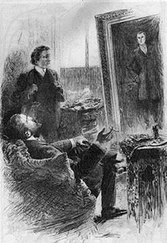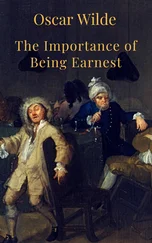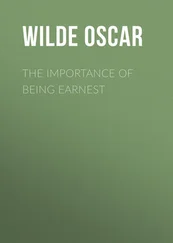Oscar Micheaux
The Oscar Micheaux Omnibus
Published by

Books
- Advanced Digital Solutions & High-Quality eBook Formatting -
musaicumbooks@okpublishing.info
2021 OK Publishing
EAN 4066338115102
The Conquest THE CONQUEST Table of Contents The Story of a Negro Pioneer
The Homesteader THE HOMESTEADER Table of Contents A NOVEL
The Forged Note
Table of Contents Table of Contents The Conquest THE CONQUEST Table of Contents The Story of a Negro Pioneer The Homesteader THE HOMESTEADER Table of Contents A NOVEL The Forged Note
The Story of a Negro Pioneer
Table of Contents
Chapter I. Discontent—Spirit of the Pioneer
Chapter II. Leaving Home—A Maiden
Chapter III. Chicago, Chasing a Will-O-The-Wisp
Chapter IV. The P——N Company
Chapter V. "Go West Young Man and Grow Up with the Country"
Chapter VI. "And Where is Oristown?" The Town on the Missouri
Chapter VII. Oristown, the "Little Crow" Reservation
Chapter VIII. Far Down the Pacific—The Proposal
Chapter IX. The Return—Ernest Nicholson
Chapter X. The Oklahoma Grafter
Chapter XI. Dealin' in Mules
Chapter XII. The Homesteaders
Chapter XIII. Imaginations Run Amuck
Chapter XIV. The Surveyors
Chapter XV. "Which Town will the R.R. Strike?"
Chapter XVI. Megory's Day
Chapter XVII. Ernest Nicholson's Return—The Building West of Town—"What's It All About"
Chapter XVIII. Comes Stanley, the Chief Engineer
Chapter XIX. In the Valley of the Keya Paha. The Rivals. The Vigilants
Chapter XX. The Outlaw's Last Stand
Chapter XXI. The Boom
Chapter XXII. The President's Proclamation
Chapter XXIII. Where the Negro Fails
Chapter XXIV. "And the Crowds Did Come." The Prairie Fire
Chapter XXV. The Scotch Girl
Chapter XXVI. The Battle
Chapter XXVII. The Sacrifice—Race Loyalty
Chapter XXVIII. The Breeds
Chapter XXIX. In the Valley of the Dog Ear
Chapter XXX. Ernest Nicholson Takes a Hand
Chapter XXXI. The McCralines
Chapter XXXII. A Long Night
Chapter XXXIII. The Survival of the Fittest
Chapter XXXIV. East of State Street
Chapter XXXV. An Uncrowned King
Chapter XXXVI. A Snake in the Grass
Chapter XXXVII. The Progressives and the Reactionaries
Chapter XXXVIII. Sanctimonious Hypocrisy
Chapter XXXIX. Beginning of the End
Chapter XL. The Mennonites
Chapter XLI. The Drouth
Chapter XLII. A Year of Coincidences
Chapter XLIII. "And Satan Came Also."
CHAPTER I
DISCONTENT—SPIRIT OF THE PIONEER
Table of Contents
Good gracious, has it been that long? It does not seem possible; but it was this very day nine years ago when a fellow handed me this little what-would-you-call-it, Ingalls called it "Opportunity." I've a notion to burn it, but I won't—not this time, instead, I'll put it down here and you may call it what you like
Master of human destinies am I.
Fame, love, and fortune on my footsteps wait.
Cities and fields I walk. I penetrate
Deserts and seas remote, and passing by
Hovel, and mart, and palace—soon or late
I knock unbidden once at every gate.
If sleeping, wake—if feasting, rise before
I turn away. It is the hour of fate,
And they who follow me reach every state
Mortals desire, and conquer every foe
Save death; but those who doubt or hesitate,
Condemned to failure, penury, and woe
Seek me in vain and uselessly implore,
I answer not, and I return no more.
Yes, it was that little poem that led me to this land and sometimes I wonder well, I just wonder, that's all. Again, I think it would be somewhat different if it wasn't for the wind. It blows and blows until it makes me feel lonesome and so far away from that little place and the country in southern Illinois.
I was born twenty-nine years ago near the Ohio River, about forty miles above Cairo, the fourth son and fifth child of a family of thirteen, by the name of Devereaux—which, of course, is not my name but we will call it that for this sketch. It is a peculiar name that ends with an "eaux," however, and is considered an odd name for a colored man to have, unless he is from Louisiana where the French crossed with the Indians and slaves, causing many Louisiana negroes to have the French names and many speak the French language also. My father, however, came from Kentucky and inherited the name from his father who was sold off into Texas during the slavery period and is said to be living there today.
He was a farmer and owned eighty acres of land and was, therefore, considered fairly "well-to-do," that is, for a colored man. The county in which we lived bordered on the river some twenty miles, and took its name from an old fort that used to do a little cannonading for the Federal forces back in the Civil War.
The farming in this section was hindered by various disadvantages and at best was slow, hard work. Along the valleys of the numerous creeks and bayous that empty their waters into the Ohio, the soil was of a rich alluvium, where in the early Spring the back waters from the Ohio covered thousands of acres of farm and timber lands, and in receding left the land plastered with a coat of river sand and clay which greatly added to the soil's productivity. One who owned a farm on these bottoms was considered quite fortunate. Here the corn stalks grew like saplings, with ears dangling one and two to a stalk, and as sound and heavy as green blocks of wood.
The heavy rains washed the loam from the hills and deposited it on these bottoms. Years ago, when the rolling lands were cleared, and before the excessive rainfall had washed away the loose surface, the highlands were considered most valuable for agricultural purposes, equally as valuable as the bottoms now are. Farther back from the river the more rolling the land became, until some sixteen miles away it was known as the hills, and here, long before I was born, the land had been very valuable. Large barns and fine stately houses—now gone to wreck and deserted—stood behind beautiful groves of chestnut, locust and stately old oaks, where rabbits, quail and wood-peckers made their homes, and sometimes a raccoon or opossum founded its den during the cold, bleak winter days. The orchards, formerly the pride of their owners, now dropped their neglected fruit which rotted and mulched with the leaves. The fields, where formerly had grown great crops of wheat, corn, oats, timothy and clover, were now grown over and enmeshed in a tangled mass of weeds and dew-berry vines; while along the branches and where the old rail fences had stood, black-berry vines had grown up, twisting their thorny stems and forming a veritable hedge fence. These places I promised mother to avoid as I begged her to allow me to follow the big boys and carry their game when they went hunting.
In the neighborhood and throughout the country there had at one time been many colored farmers, or ex-slaves, who had settled there after the war. Many of them having built up nice homes and cleared the valley of tough-rooted hickory, gum, pecan and water-oak trees, and the highlands of the black, white, red or post oak, sassafras and dogwood. They later grubbed the stumps and hauled the rocks into the roads, or dammed treacherous little streams that were continually breaking out and threatening the land with more ditches. But as time wore on and the older generation died, the younger were attracted to the towns and cities in quest of occupations that were more suitable to their increasing desires for society and good times. Leaving the farms to care for themselves until the inevitable German immigrant came along and bought them up at his own price, tilled the land, improved the farm and roads, straightened out the streams by digging canals, and grew prosperous.
Читать дальше













